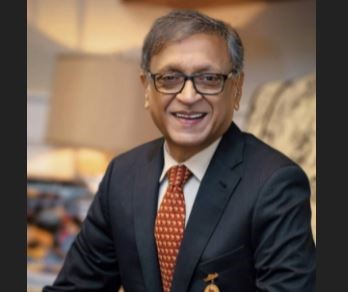DESIBUZZCanada
Events Listings
Dummy Post

International Day Of Yoga To Be Virtually Celebrated Saturday At 4pm

CANCELLED: Coronavirus Fears Kills Surrey’s Vaisakhi Day Parade

ADVERTISE WITH US: DESIBUZZCanada Is The Most Read South Asian Publication Online

SURREY LIBRARIES: Get Technology Help At Surrey Libraries

WALLY OPPAL: Surrey Police Transition Update On Feb. 26

GONE ARE THE DAYS - Feature Documentary Trailer

Technology Help At Surrey Libraries

Birding Walks

Plea Poetry/short Story : Youth Contest

International Folk Dancing Drop-in Sessions
THE END OF PANDEMIC: Don’t Go Back To Old Habits – It’s Time To Embrace Healthy Living
- March 28, 2022

By Dr. Arun Garg
Finally, it seems, there is a light at the end of this long, dark pandemic tunnel. With health restrictions being lifted, British Columbians are breathing easier, they are considering travelling again or maybe even attending a concert or hockey game.
Although we all must remain cautious, this undoubtedly comes as a much-needed mood boost for all of us. But as a lifelong physician, I’m hoping this won’t simply be a return to normal.That’s because the ‘normal’ that many people are living is marked by unhealthy foods, high stress, insignificant exercise, poor sleep and burnout. The results are evident: Widespread obesity, high blood pressure, coronary heart disease and many other chronic ailments. The South Asian community, of which I am a proud member, is considered a high-risk population for developing Type 2 diabetes.We all know that COVID was particularly tough on those with underlying health conditions like these.
It doesn’t need to be this way. It’s not sustainable for our health care system and it’s not healthy for us.
As we emerge from COVID and its many restrictions, I am advocating a significant reset in the way we think about our health.There is no miracle vaccine that is going to cure us of our food addiction or free us from our mortgage stress or work anxiety. But there is a better path to improved health.
In addition to traditional medicine, there is emerging evidence that suggests mind-body medicine can improve health, prevent disease and contribute greatly to our wellbeing.
Good health is much more than the absence of disease. It’s about total body health including physical, mental and spiritual health.Think of it this way: If healthcare were a three-legged stool, one leg will always include external interventions like surgery, vaccines and pharmaceuticals. A second leg is lifestyle, involving things such as nutrition, sleep and stress. But for true balance, we require the third leg - self-care - which connects the body, mind and intellect. It is a wholistic, integrative approach known as mind-body medicine.
Physicians typically don’t prescribe yoga, tai chi or meditation to their patients but maybe they should. Stress and unhealthy lifestyles represent a massive public health burden. We can create healthier outcomes if we encourage better nutrition, daily exercise and embrace practices that enhance mind health.
The Canada India Network Society believes we can improve health outcomes through the acceptance of this integrative thinking. It’s about empowering individuals to take an active role in all aspects of their health.
For generations, western medicine – and I have been a practitioner for more than 40 years – has focused on what you can see, the physical body, and developed interventions to improve health. Those interventions include surgery, drugs and vaccines.
But for centuries, eastern health practitioners have focused on the brain and the role the mind plays in our overall health. Evidence proves that self-awareness and self-care taught through techniques such as yoga and meditation improves wellbeing.
Yes, there are skeptics and those who would call this airy-fairy nonsense. Frankly, for most of my career as a B.C. physician and medical leader, I failed to recognize the lifechanging benefitsof mind-body medicine. But there is clear evidence that the nervous, endocrine and immune systems communicate with each other, which explains why our emotional wellbeing and belief system can affect our physical health.
I truly believe we can improve our health by marrying the best of western medicine with the best of the east. The integration of mind-body medicine is still relatively new but it is being taught in some health care settings and at universities such as Harvard.
Much more needs to be done and I am encouraging my health colleagues – doctors, nurses and other healthcare professionals – to embrace the transformative power of mind-body medicine. I’m asking policy makers to study this inexpensive way to improve health outcomes and drive down costs.
For me, it’s not about ‘fixing’ our flawed health system. Now, it’s time for healing ourselves.

Dr. Arun Garg is a clinical professor at the University of B.C and president of the Canada India Network Initiative (www.thecins.org) which promotes good health while building links in academia, industry and among policy leaders.












